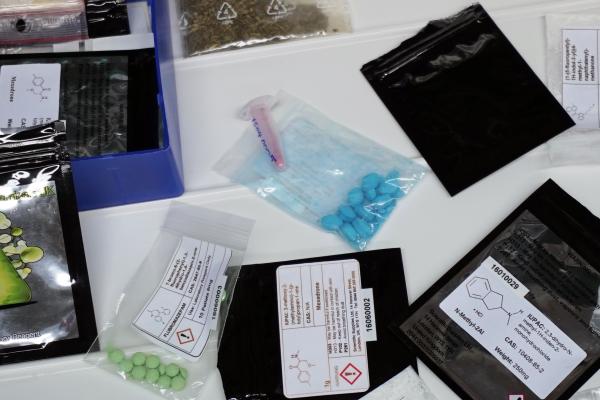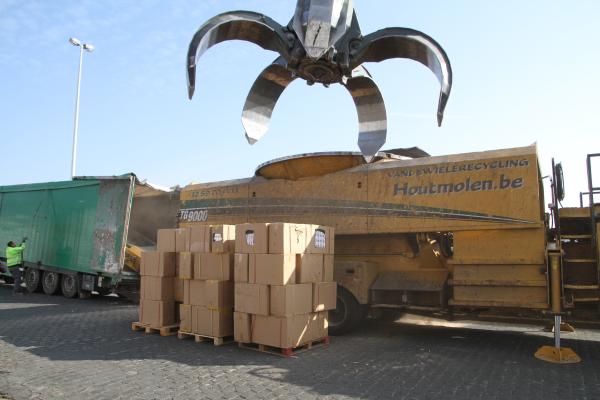Organised crime is a threat to European citizens, businesses, state institutions as well as the economy as a whole. Criminals easily operate across borders, which creates a need for consistent European–level action. The EU continuously adapts its response in relation to the growing complexity of the situation, including the development of specialised EU agencies, such as Europol, Eurojust and CEPOL.
In April 2021 the European Commission adopted the EU Strategy to tackle organised crime for the period 2021-2025. The Strategy sets out priority work strands and actions to tackle the organisation and business model of criminal networks. The strategy is aimed at boosting law enforcement and judicial cooperation, disrupting organised crime structures and tackling high priority crimes, eliminating the profits generated by organised crime and making law enforcement and the judiciary fit for the digital age.

Trafficking in human beings is a highly profitable crime that brings enormous profit to criminals while incurring a tremendous cost to society.

The EU has been coordinating activities to counter firearms trafficking for several years, but new threats have emerged that demand new actions.

The EU is taking strategic and operational measures to reduce drug supply and demand by working closely with EU countries and other partners.

Financial investigations are an essential tool of a modern and effective response to criminal threats including terrorism financing.

Counterfeiting, infringements of intellectual property rights, and fake products constitute a serious threat to national economies, as well as to the health and safety of EU citizens.

Confiscation and asset recovery are a strategic priority in the EU's fight against organised crime. Substantial efforts have been made to better trace and confiscate the proceeds of organised crime.
Going after criminals' money
Modern financial turmoil highlights the prominence of financial crime, including tax fraud, identity theft, money laundering and outright corruption. The ratification of the United Nations' Convention against Corruption has been a further step towards a more coherent EU anti-corruption policy. Nevertheless, more needs to be done to ensure effective cooperation between EU States' authorities, in particular on preventing crime by effectively freezing, confiscating and recovering proceeds of crime, as proposed by the Commission in its recent proposal for a new Directive on asset recovery and confiscation. Our action also entails promoting EU-wide standards on financial investigations, which includes making more frequent use of joint investigation teams.
Counterfeiting and infringements of intellectual property rights are becoming increasingly widespread. They now include commodity goods and pharmaceuticals, which not only hurt legitimate commercial interests, but also put the health and safety of European consumers at risk. This profitable business is generating income that can compete with drugs and firearms trafficking, but at a much lower risk.
The EU’s action to fight drug trafficking is closely connected to the fight against organised crime and to the high level protection of health. Organised crime groups make considerable profits from trafficking illegal drugs (up to EUR 230 billion a year).
To contribute to countering this threat, the EU has developed a comprehensive, which is implemented through an EU Action Plan that covers drug supply, drug demand and harm reduction, international cooperation, research, innovation and foresight and coordination between EU on the drugs phenomenon. States. In view of the threatening situation, the Commission has recently stepped up the fight against drug trafficking and the criminal networks behind it, with the adoption of a new EU Roadmap to fight drug trafficking and organised crime. The Roadmap complements the EU Strategy on Organised Crime and the Drugs Strategy and Action Plan with targeted concrete actions to be implemented in 2024 and 2025. Actions focus on strengthening the resilience of logistic hubs with a European Ports Alliance, dismantling criminal networks, supporting crime prevention measures and strengthening international cooperation.
The European Monitoring Centre for Drugs and Drug Addiction (EMCDDA) provides the EU and its States with factual overviews of the European drugs phenomenon and a solid evidence base to support the drugs debate. As of July 2024, the EMCDDA will be provided with a stronger mandate, becoming the EU Drugs Agency tasked with a more important role in identifying and addressing current and future challenges related to illicit drugs in the EU.
The EU also increasingly cooperates on crime trends that dominate the political agenda, such as fraud or trafficking in cultural goods. Trafficking in cultural goods is a complex, inherently transnational criminal phenomenon. It is a lucrative business for organised crime, and in some cases for conflict parties and terrorists. Beyond actual trafficking, criminals can misuse cultural goods for money laundering, sanctions evasion, tax evasion or terrorism financing. Tackling this crime area requires a tailor-made response at EU level. On 13 December 2022, the European Commission presented EU action plan against trafficking in cultural goods.
Environmental crime deserves particular attention due to its harmful effects on biodiversity and on the environment, health and social cohesion within the EU and in third countries. The Commission is reviewing the EU Waste Shipments Regulation and the Action Plan against Wildlife Trafficking as well as the Environmental Crime Directive.
How can the EU contribute to the fight against organised crime?
Operational activities, such as pursuing and prosecuting criminals, remain the responsibility of EU countries. The Commission’s objective is to assist EU countries in fighting organised crime more effectively. The EU's action extends from crime prevention to law enforcement and is based on various tools, such as:
- legislative measures harmonising rules concerning offences in relation to a criminal organisation
- gathering of reliable crime statistics
- funding of European projects or specialist networks
Modern organised crime requires a multi-disciplinary approach to effectively prevent and counter it. Therefore, the EU has developed the so-called "Administrative approach", which can best be described as a combination of tools at administrative level to prevent organised crime from infiltrating the public sector, the economy or key parts of the public administration. Preventing such infiltration is equally important as fighting organised crime with the tools of the criminal justice system. Some EU States are fairly advanced in implementing this new approach, while others only recently discovered it. In order to further develop and implement the approach EU-wide, the Commission facilitated the establishment of a network of informal contact points for exchanging best practices. Europol has offered its infrastructure to exchange administrative information between EU States at a more operational level.
